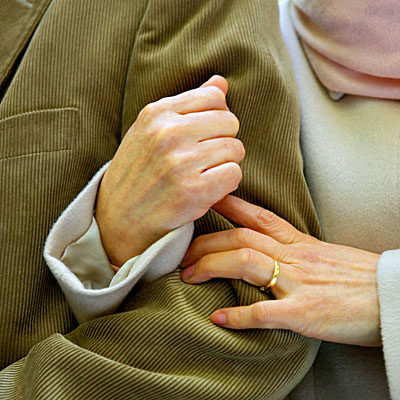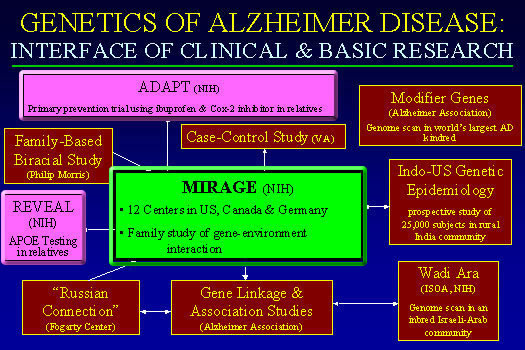Alzheimer Disease is the most typical form of dementia that has no medical cure or treatment right now. This disease retrogresses as one ages since the primary factor of the development of it is related to age. It is also one of the major causes of mortality among elderly people who are in the age bracket of 60 onwards. To those who are not aware, the name of this disease was named after Alois Alzheimer who was a known German Psychiatrist and neurophatologist in 1906 because he was able to identify the first case of dementia. The symptoms of AD are usually evident and apparent to people who are over 65 years old although it varies according to cases of patients who are diagnosed of it. Let’s unleash the facts about this disease that you might not know yet, but would eventually help you and your loved ones to detect it early.
10. It Affects People At the Age of 79
Photo Source: articles.latimes.com
Based on the 2009 research written at Alzheimer’s and Dementia Journal, people who are 70 years of age and above were informed by a doctor that they had Alzheimer’s or dementia. Majority of them were aware of it—or some of the family members knew about it. In most cases, they tend to contact doctor or stay in the hospital for a few days. Some of the early warning signs of it are changes in behavior and mood which typically misdiagnosed as depression.
9. They Don’t Want People To Baby Talk With Them

Photo Source: whiteplains.lohudblogs.com
Try to visualize if a person came up to you and tried speaking in a baby tone voice, showing the nicest face and making it close to yours. What would be your reaction? Would you try to withdraw, or laugh at those people, or just ignore them? Remember they are adults, and they only have Alzheimer’s. They would want to be treated normally despite that they have this kind of disease.
8. They Don’t Accept a Term of Endearment

Photo Source: lebeauleblog.com
We only hear a term of endearment from friends and close family members. These are typically addressed to people we care and respect so much. Whether you are a health professional or someone who is closely related to the patient, you should refrain from calling them “honey”, “sweetheart”, and others. You are not helping the person to remember precious things, especially his or her name. Call them in their names so they would also have the opportunity to remember you and other important memories.
7. Behavioral Symptoms of Alzheimer’s Disease

Photo Source: www.health.com
If you have observed behavioral symptoms of this disease, you would need to consider contacting caregivers for long-term care. This is the best recommendation to avoid harm to both the patient and the people around them.
6. This Is Not Part of Aging

Photo Source: crossthefader.org
It is true that memory loss is part of the aging process that people experience. However, the severity of it does not really hinder the normal level function. In reality, there are several diseases that trigger dementia or Alzheimer’s disease not just in the United States, but also in other countries. Aging was and is never a symptom of Alzheimer’s disease. In fact, it can also affect young people during their 30s and 40s.
5. People Who Have It Are Not Confused

Photo Source: www.huffingtonpost.com
Patients who have this disease will still experience clarity of thought often. They can still remember some information that is correct. You have to trust those people who have dementia that they are saying things that have happened out of their memory. Never insinuate that they are confused or they have their memories jumbled.
4. Spends 30% Medical Costs Than Those Who Do Not Have the Disease

Photo Source: www.usagainstalzheimers.org
People who are diagnosed of this disease pay 30% out of their pocket due to healthcare costs compared to those who do not have the similar disease. This was based from a recent annual report. In fact, according to the report published, the cost adds up as the disease develops. This is where an additional support like home care is needed. Of course, this also adds up to more costs.
3. 10 Warning Signs of This Disease

Photo Source: www.alz.org
The Alzheimer’s Association issued a list of warning signs in detecting Alzheimer’s disease. These are warnings to individuals who are not yet diagnosed, but would need to visit a doctor to have a thorough check-up or medical evaluation to asses early signs. Some of the symptoms are loss of initiative, disorientation to time and place, memory loss, changes in personality, problems with language, misplacing things, poor or decreased judgment, changes in mood or behavior, difficulty in performing familiar tasks, and problem with abstract thinking.
2. Genetic Risk of Alzheimer ’s disease

Photo Source: www.bumc.bu.edu
Age is still the main factor that affects Alzheimer’s Disease. There are also other genetic factors that are risky to patients.
1. It Is More Than Just A Memory

Photo Source: topics.time.com
As you learn to recognize the problem of this disease that triggers memory loss, you would know what to do next. In the medical realm, most of the memory concerns are addressed easily where treatments are available. It depends if it is caused by depression, thyroid conditions, and even deficiencies in nutrients. One must not forget that the symptoms of this disease progress and can be more persistent. Forgetfulness is the primary symptom, but it digs deeper. The last stage of this disease is loss of ability to engaging basic physiological activities like swallowing and moving that leads to death.
